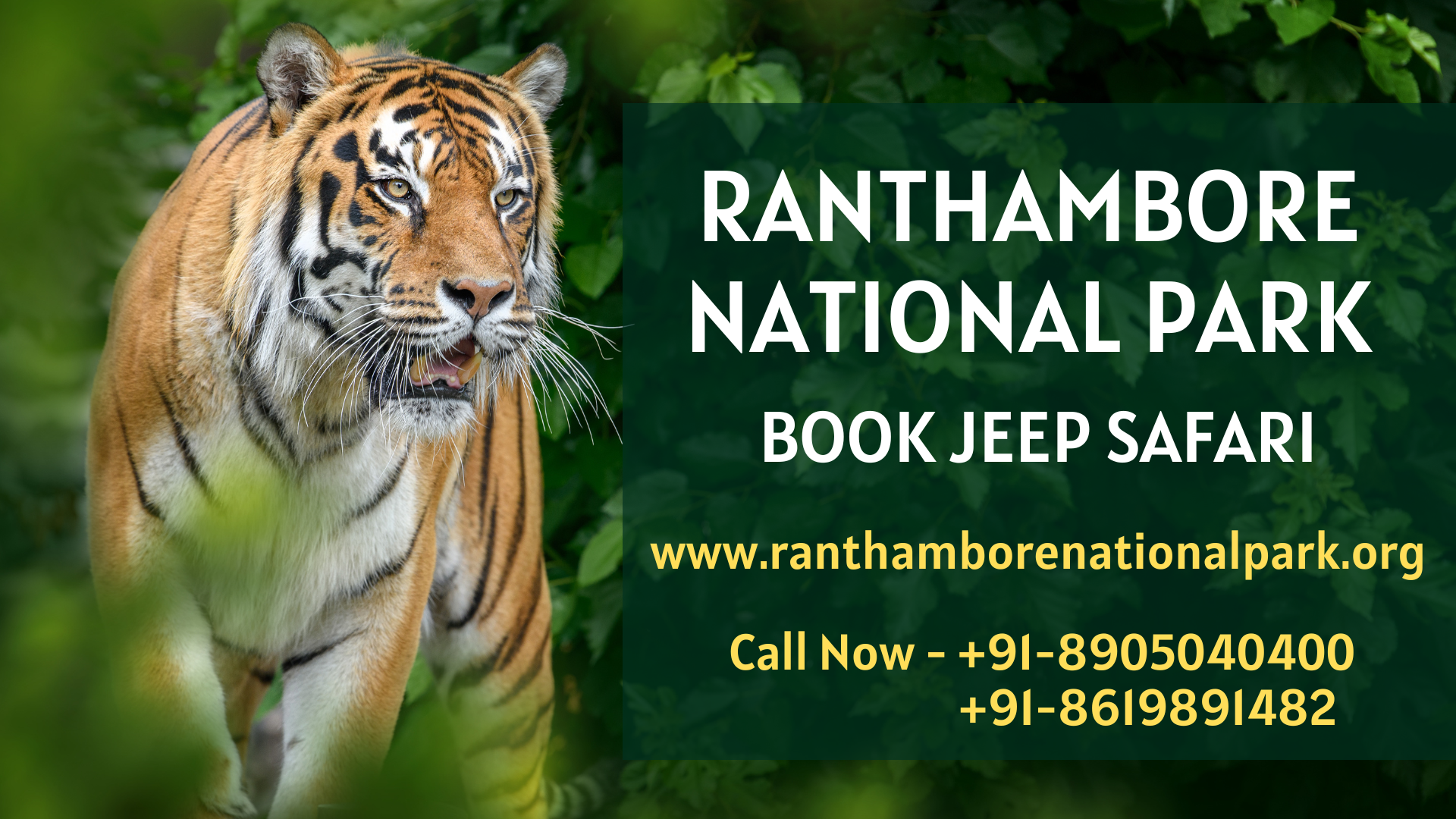Ranthambore Safari Booking: An Unforgettable Wildlife Experience

Ranthambore National Park, situated in the Sawai Madhopur district of Rajasthan, India, is a wildlife enthusiast's paradise. Known for its stunning tigers, varied plants and animals, and awesome landscapes, the park offers an unrivaled safari experience that draws in visitors from all over the world. Whether you're an experienced wildlife professional photographer or a newbie explorer, booking a Ranthambore safari Booking assures an experience that will stick with you for a life time.
Why Book a Ranthambore Safari?
Ranthambore is among the very best locations in India to find the Royal Bengal Tiger in its natural habitat. The park's dense forests, rolling hills, and open meadows offer the ideal setting for these spectacular creatures to roam freely. But tigers aren't the only destination-- Ranthambore is home to a variety of wildlife, consisting of leopards, sloth bears, crocodiles, and over 300 types of birds. The park's biodiversity and the possibility to witness wildlife in close proximity make it a must-visit destination.
Kinds Of Safaris Available
Visitors to Ranthambore National Park can select between two primary kinds of safaris: the Jeep Safari and the Canter Safari
• Jeep Safari: Ideal for smaller sized groups, the Jeep Safari is carried out in a 6-seater open vehicle, offering a more intimate and flexible wildlife seeing experience. The smaller sized size of the vehicle enables access to narrow paths and offbeat tracks, increasing the chances of identifying evasive animals.
• Canter Safari: The Canter Safari is a 20-seater open bus, appropriate for larger groups. While it covers comparable paths as the Jeep Safari, the experience is more communal, and it's an excellent option for budget-conscious tourists.
Each safari lasts roughly three hours and happens two times a day-- when in the early morning and as soon as in the late afternoon. These timings are designed to accompany the peak activity periods of the park's wildlife, making the most of the chances of sightings.
Booking Your Safari.
Booking a safari in Ranthambore can be done online through the main website of the Rajasthan Forest Department or through licensed travel agents. It is suggested to book well ahead of time, especially throughout peak seasons (October to June), as the variety of vehicles allowed in the park is restricted to reduce ecological effect. When booking, you can choose in between different zones of the park, each using a distinct landscape and wildlife experience. Zone 1 to 10 are the most popular, with Zones 1 to 5 being known for greater chances of tiger sightings.
Lodging Options
Ranthambore provides a series of accommodation options to fit every budget, from luxury turn to environmentally friendly lodges and spending plan hotels. Staying near the park entrance is advised for easy access to your safari, specifically for early morning slots. Lots of resorts and hotels also use packages that consist of safari bookings, directed tours, and cultural experiences, supplying an extensive Ranthambore experience.
Finding Ranthambore Fort: A Journey Through History
While the wildlife safari is the main attraction at Ranthambore, the park is likewise home to the historic Ranthambore Fort, a UNESCO World Heritage Site that adds an abundant cultural dimension to your check out.
A Glimpse into the Past
Ranthambore Fort, set down atop a hill within the national park, dates back to the 10th century and is among the earliest forts in Rajasthan. The fort was a strategic defense point for the rulers of the area, managing the trade routes between North and Central India. It has actually experienced numerous fights, especially during the reign of the Chauhan dynasty, and later under the control of the Delhi Sultanate.
The fort is a vast complex with massive stone walls, imposing gates, and numerous temples and palaces within its properties. As you explore its ancient ruins, you can almost hear the echoes of history and think of the magnificence of the fort in its heyday.
Key Attractions at Ranthambore Fort
• Ganesh Temple: One of the most revered temples in the region, the Ganesh Temple within the fort is a significant expedition site. Devotees from across the nation see to seek blessings from Lord Ganesh. The temple's peaceful environments and breathtaking views of the park make it a peaceful retreat.
• Jogi Mahal: Situated near the Padam Talao, the largest lake in the park, Jogi Mahal was when a searching lodge for the Maharajas of Jaipur. Though closed to the general public, the mahal's location provides spectacular views of the lake and the surrounding wilderness.
• The Fort's Architecture: The architecture of Ranthambore Fort is a mix of Rajput and Mughal designs, showing the numerous rulers who have occupied it over the centuries. The fort's bastions, gates, and temples are adorned with elaborate carvings and sculptures, providing a look into the creative heritage of the area.
Checking out the Fort
Checking Out Ranthambore Fort resembles going back in time. The fort can be reached by a short trek from the park entrance, offering an opportunity to enjoy the natural beauty of the surroundings. The trail is well-kept and offers spectacular views of the park and the close-by lakes. When inside the fort, you can spend hours exploring its different structures, each with its own story to tell.
Combining Wildlife and Heritage
A trip to Ranthambore is incomplete without experiencing both the thrilling safari and the Ranthambore National Park historic fort. The combination of wildlife adventure and cultural expedition makes Ranthambore a special destination, using something for everybody. Whether you're admiring a tiger in the wild or taking in the history of the fort, Ranthambore guarantees an unforgettable journey that will leave you with stories to share and memories to treasure.
When planning your go to, ensure you allocate time for both the safari and a fort tour. In this manner, you can totally value the natural and historic significance of this extraordinary region.